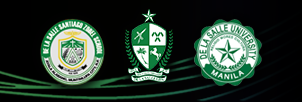Sinaya: A Philippine Journal for Senior High School Teachers and Students
Theme
Humanities, Arts and Education
Research Advisor
Felicia I. Yeban
Abstract
The Coronavirus disease 2019 pandemic significantly influences students' educational attainment as they actively find and rationalize knowledge obtained from emergency remote learning. As a response, the agency or the ability to regulate one’s learning provides the students with the ability to believe in themselves. Still, it also necessitates the deliberate consideration to create a plan of action and modify it as required to achieve one's objectives. This study obtained knowledge from emergency remote learning (ERL) experiences of Filipino Grade 10 Students in their Social Studies class. The researchers employed a phenomenological approach to understand the self-agency practices of Grade 10 students in the emergency remote learning set-up and the factors that led to it. The participants in this study were 25 Grade 10 Students from a selected public junior high school in the National Capital Region, Philippines, for the academic year 2020-2021. Self-agency as a learning strategy was examined through two sets of interviews, which revealed that students have adapted to this new learning environment by forming self-agency practices such as establishing personalized routines, seeking peer support, keeping track of time, accessing online and offline resources, and engaging study breaks. The teacher, learning space, and government and parental support were the factors that led to the self-agency practices of students in the ERL setup.
Recommended Citation
Tababa, John Cris C.; Apo, Paul Andrei C.; Gammaru, Golden Grace R.; Manaay, Audrey S.; Nadua, Kathrin Anne N.; and Fontillo, James Fhonzy Angelo S.
(2024)
"Self-Agency as a Strategy in Emergency Remote Learning Among Filipino Grade 10 Students,"
Sinaya: A Philippine Journal for Senior High School Teachers and Students: Vol. 3:
Iss.
4, Article 6.
DOI: https://doi.org/10.59588/3027-9283.1129
Available at:
https://animorepository.dlsu.edu.ph/sinaya/vol3/iss4/6

